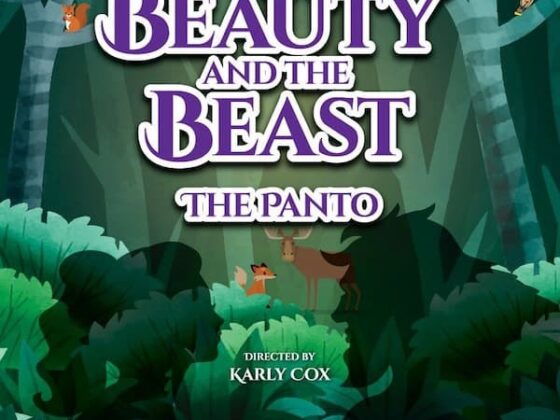In Hong Kong, where same-sex partnerships are not recognised, married LGBTQ couples are writing wills and making advanced death preparations to protect their partners when the time comes.
In April, Gary sat down at his computer. Between tears, he stitched together a video with photos of him and his late husband, marking 20 years since they first met.
“Thank you for bringing colour to my life… you don’t have to worry about me,” Gary wrote in a Facebook post in Chinese. “I will love you forever.”
Benny, Gary’s husband, died unexpectedly in his sleep in October last year at the age of 44. Amid a months-long inheritance battle with Benny’s in-laws, who never recognised their relationship, Gary, 39, has had little room to grieve the loss.
“When we scattered Benny’s ashes, I asked them to return Benny’s identity card to me. They said, ‘Who are you to Benny?’” said Gary, who requested that he and his late husband be identified only by their English names.
“This really hurt me,” he told HKFP in Cantonese. “In their eyes, I am just an outsider.”
He said that Benny did not leave a will, believing he was still young. That left Gary in a vulnerable position.
To stop Gary from handling his late husband’s estate, his in-laws applied for a legal objection called a caveat.
In June, the judge overturned the caveat and ruled that Gary – as Benny’s husband – has priority to handle the estate. The decision was a victory for Benny, but one that came with an emotional roller coaster and a six-figure sum in legal fees.
“The whole thing left me very angry and very tired,” Gary said.
The mental toll Gary dealt with is exactly what social enterprise Alongside seeks to prevent.
Founded in 2023, Alongside offers services related to advanced preparations for death, targeting same-sex couples in particular. For example, they help couples write wills to appoint their other half as the executor, giving them the right to handle their partner’s estate and arrange their funeral.
Jensen Yiu, one of Alongside’s co-founders, said same-sex couples have a stronger incentive than heterosexual couples to undertake such planning because Hong Kong does not recognise same-sex marriage.
How after-death matters would be handled – such as access to the deceased’s bank accounts, arranging cremation, and the distribution of the deceased’s wealth – is hence uncertain.
In September – ahead of the October deadline – the government’s proposed framework for recognising same-sex marriages registered overseas failed to pass in the Legislative Council. The legislature has had no opposition since an overhaul in 2021 allowed only “patriots” to run.
Same-sex couples might also have more complicated family relationships, Yiu said, making end-of-life planning essential.
“Some people may be rejected by their family and therefore be distant from them,” Yiu told HKFP in Cantonese. “In other cases, the family might not even know the relationship exists.”
Yiu said a properly written will could help mitigate inheritance disputes. “When their rights are challenged, the difficulty would be higher,” he added.
‘Not in the family WhatsApp group’
Lawyers told HKFP that more same-sex couples have been seeking legal advice about end-of-life planning in recent years, especially after the release of the movie All Shall Be Well last year.
The film, directed by Hong Kong director Ray Yeung, tells the story of an elderly woman who, after the sudden death of her lifelong lesbian partner, fought to keep their shared home amid conflict with the family of her late significant other.
Kitty Chong, a family lawyer, said she had couples of all ages – young and old – asking for advice on writing wills and handling post-death matters.
“Some of them have done quite a bit of research on their own before coming to us,” she said, adding that the trend may also be influenced by a reduced taboo around death in society.
Recently married couple Gloria Tsang and Jaedyn Yu, both in their mid-30s, said they were well aware of the importance of end-of-life arrangements, having witnessed inheritance disputes in their own families.
The two registered their marriage virtually in the US state of Utah in May and had a wedding party in the same month in Bali, Indonesia. Amidst the chaos of wedding planning, the couple were also doing a very different kind of preparation.
They made trips to a lawyer’s office to formalise wills and appoint each other as their enduring power of attorney – a legal tool through which the appointee can access the other party’s finances if they are incapacitated.
The couple said rocky family relationships were the main reason why they signed those documents.
Yu, a drum teacher, said her “very traditional Chinese family” has not welcomed Tsang with open arms – in contrast to the warm treatment Yu has received from her wife’s family.
“She’s not invited to family trips, and she’s not in the family WhatsApp group,” Yu said of Tsang. “They don’t know when her birthday is.”
Tsang, a speech therapist, said Yu’s parents seemed to have “softened” after the wedding.
“They told me I can call them Mom and Dad,” Tsang said. But she still felt she was treated differently from the wife of Yu’s brother.
“Our relationship is not recognised as much as their relationship because they’re straight, they have kids, they have a ‘proper family,’” Tsang said.
They said writing wills was not just to ensure their other half could inherit their wealth, but to protect each other from potential conflict down the road.
“I love [Gloria]. I love my family,” Yu said. “I don’t want anything to be too chaotic if I’m gone.”
‘Cannot count on the law’
Same-sex married couples in Hong Kong have limited protections in the city. The few rights they have – in areas like housing and tax filing – are a result of LGBTQ activists challenging issues in court.
Last year, the Court of Final Appeal ruled that same-sex married couples have the same rights as heterosexual couples under the Intestates’ Estates Ordinance, the set of laws dictating arrangements when a spouse passes away without a will.
With this ruling, if a same-sex couple does not have children, the surviving spouse would receive the first HK$1 million of their late partner’s estate and half of what remains. The other half would go to the late spouse’s parents.
Even though the ruling has put same-sex and heterosexual married couples on equal footing when one spouse dies without a will, family lawyer Alfred Ip said, that does not mean writing a will is not important.
A will covers matters beyond asset distribution, including specific instructions for funeral, burial and cremation arrangements, Ip said.
“If you don’t do anything, you cannot count on the law or the court to protect the other half,” Ip told HKFP.
He also said the “default rule” of surviving parents receiving half of what remains after the first HK$1 million is taken by the spouse could be “contrary to the deceased’s wishes, especially in cases where there is a strained or distant relationship” with the family.
“By creating a will, you can override these statutory provisions and dictate precisely how your assets are distributed,” he said.
“We are talking about wealth… it’s only right for the two people who built the wealth together to be entitled to that wealth when one party passes away,” Ip added.
End-of-life wishes
For a semi-retired couple like Lucas Peng and his husband, who asked to go by his nickname Mark, end-of-life planning is a more pressing consideration compared with their younger peers.
Peng is 67, while Mark is 61. They met in 1992 when Peng, who is Singaporean, moved to Hong Kong for work with a hospitality company.
Although they have been together for decades, Peng and his husband only married last year, joining nine other same-sex couples at a mass ceremony arranged by Next Chapter – an LGBTQ-friendly wedding-planning company that helps couples in Hong Kong register marriages overseas.
Peng and Mark each wrote their first will in 2017 and made a new one last year.
“The previous wills were not written with a lawyer,” Peng told HKFP in Cantonese. He said the couple wrote the wills based on advice given by an insurance agent he had bought policies from and templates he found online.
“The previous ones were more general, covering just total asset value. The new ones were done with a lawyer, so they are more specific and professional, and go into detail about the property we have,” he said.
The new wills also list their end-of-life wishes, Peng said. “We want our ashes scattered in a park. We don’t want a religious ceremony.”
The couple see writing wills, just like getting an overseas marriage certificate, as a layer of protection in a city that does not recognise their union.
Peng said he “definitely did not agree” with the lawmakers who last month voted down the government-proposed bill to recognise overseas same-sex marriages. Many of the legislators said they were concerned that recognising same-sex unions would undermine the “traditional” heterosexual marriage institution.
“A relationship between two people should be up to them. Does [their relationship] affect society? “Peng said. “To me, no.”
The bill offered some rights to same-sex couples married overseas, such as applying for a death certificate and handling burial, cremation, and ash-keeping for their deceased spouse.
With the failure of the government’s proposal to pass – and the continuing absence of a legal framework recognising same-sex married couples – it has become all the more important for the gay couple to proactively safeguard their rights.
“I have a lot of family members,” said Peng, who grew up with 10 siblings.
“I am older than Mark by six years. If I go first, I want to leave something behind for him.”
The article was originally published in Hong Kong Free Press




